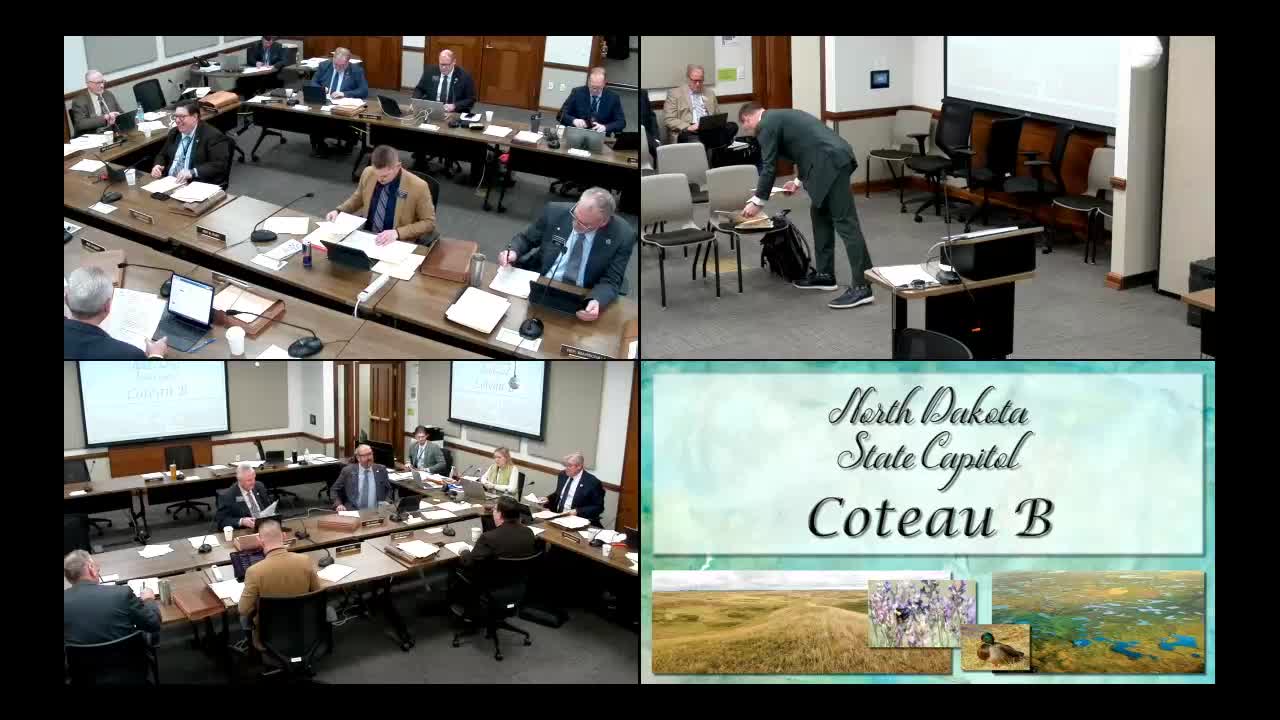Sponsor revises public-buildings carry bill after court precedent; universities and colleges raise concerns
Get AI-powered insights, summaries, and transcripts
Subscribe
Summary
Representative Koppelman told the House Energy and Natural Resources Committee that House Bill 1365 aims to narrow carry restrictions in publicly owned and operated buildings to lines that would more likely survive judicial review under the U.S. Supreme Court’s Bruen decision.
Representative Koppelman told the committee House Bill 1365 is an effort to align North Dakota policy with the U.S. Supreme Court’s Bruen decision by narrowing places where the state restricts carrying firearms in publicly owned or operated buildings.
Koppelman said the bill focuses on "public areas" — portions of government buildings accessible without a permit, key or badge — and on nonpublic areas that remain restricted. "The places you can go without restriction... are what this is meant to address," he said, adding the measure was intended to protect many locations from broad restrictions that might not survive judicial review. He said the bill restores some exceptions for law-enforcement facilities and for other previously intended exclusions.
University and college officials, including Katie Fitzsimmons (North Dakota University System) and Lloyd Halverson (Lake Region State College, chief of police), testified in opposition or concern. Fitzsimmons emphasized that the university system has about 45,000 students and that campuses have not sought a change to allow general carry; she warned about classroom intimidation and the power differential between students and instructors. Halverson said he would likely be neutral if the sponsor’s carve-out for institutions of higher education were in the bill but said he was opposed to the bill’s original form.
Brian Gosch of the NRA testified in support in spirit, arguing that "gun-free zones generally don't work" and that some surrounding states allow carry in government buildings without reported problems. He supported state preemption and uniformity across jurisdictions.
Representatives and witnesses debated mixed-use facilities (for example, a church with an attached private school) and how the bill would treat commingled spaces. Koppelman said purpose at a given time would determine which restrictions apply and suggested signage could clarify usage in mixed facilities.
The Department of Health and Human Services offered a proposed amendment to keep firearms prohibited in areas occupied or leased by state mental-health facilities (State Hospital, Life Skills and Transition Center, behavioral health clinics).
The committee closed hearings on HB 1365 after extensive testimony from higher-education leaders, public-safety officials and advocates; no committee vote on the bill is recorded in the transcript.
